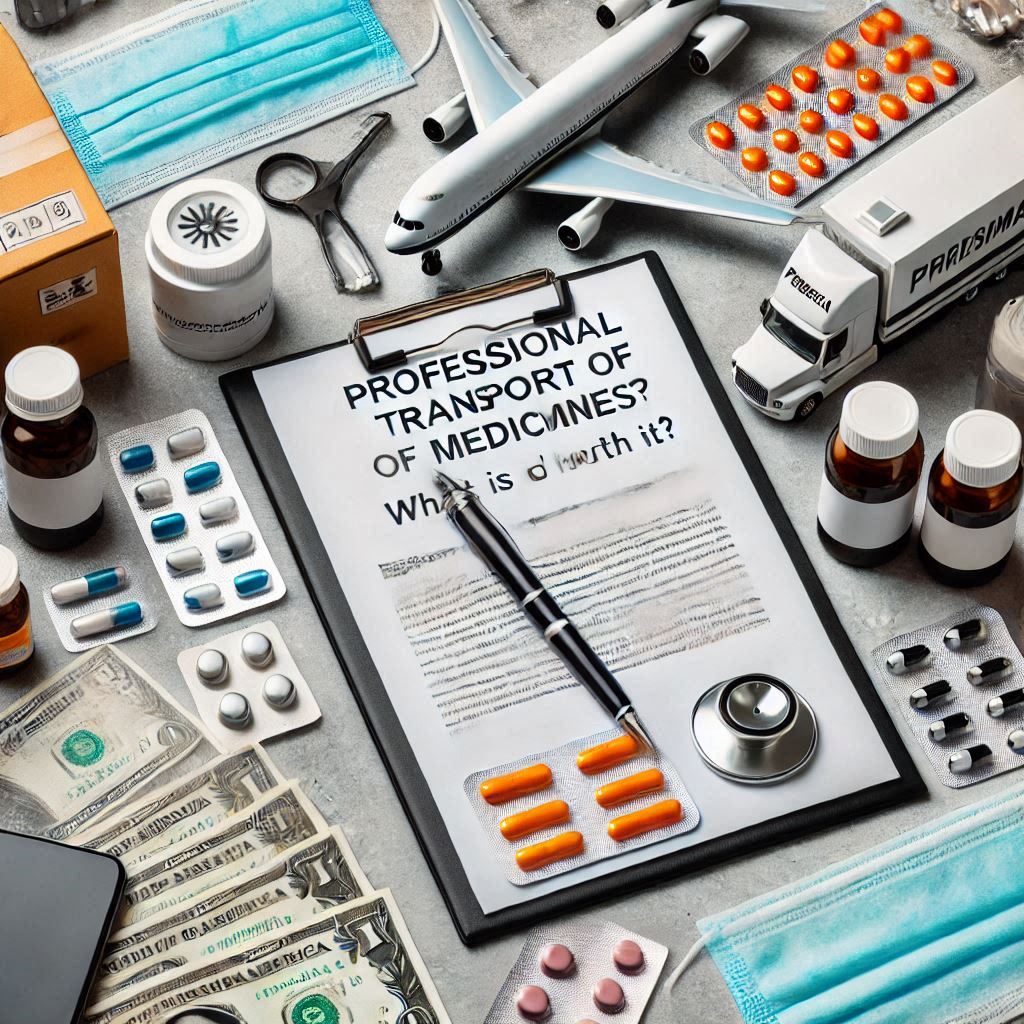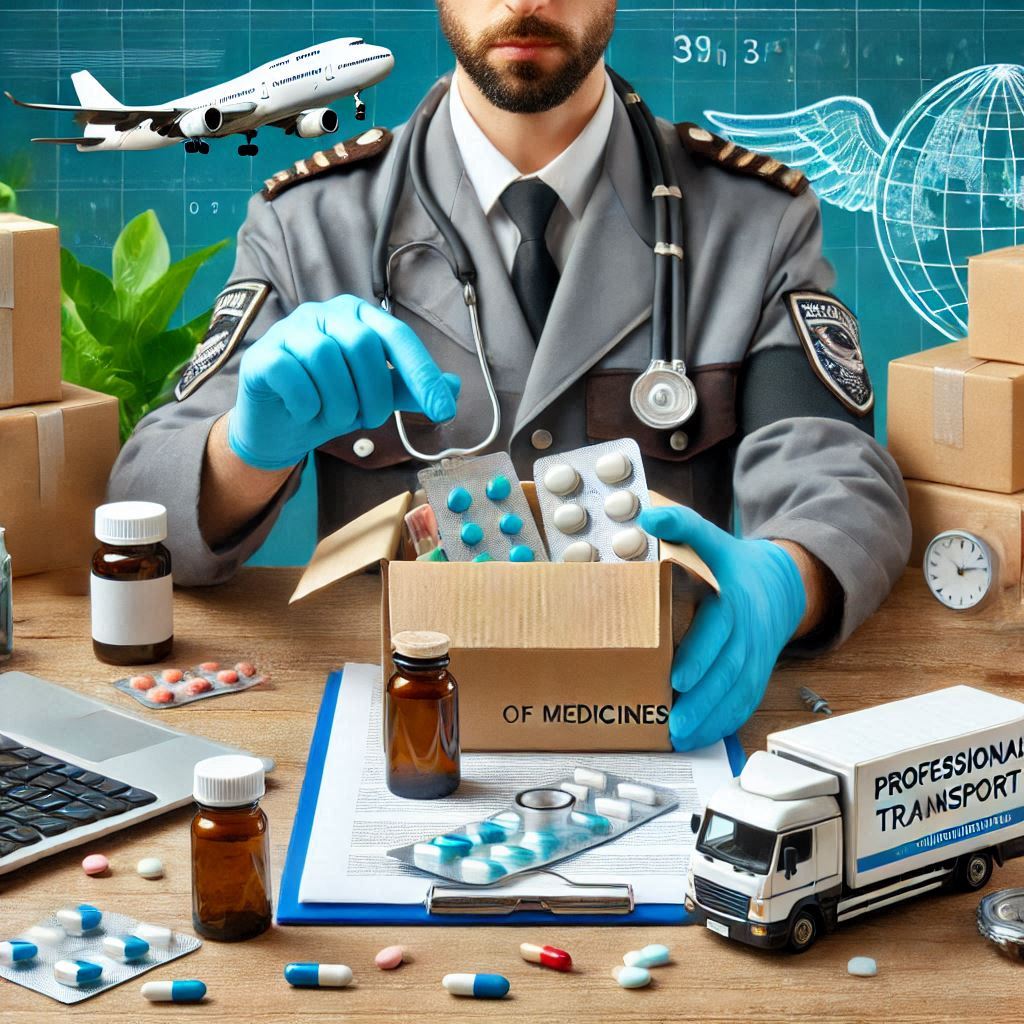Professional transportation of medicines - rates and requirements
Transportation of pharmaceuticals requires meeting the highest safety and quality standards. The transportation of pharmaceuticals is one of the most demanding types of transportation, where costs are closely linked to the need to comply with strict standards and regulations.
Check out our pharmaceutical transportation services
Pharmaceutical transportation - basic requirements
The basis of pharmaceutical transportation is compliance with pharmaceutical laws and GDP (Good Distribution Practice) certification. The carrier must ensure proper temperature conditions and meet a number of quality and safety standards. It is particularly important to maintain a constant temperature between 2 and 8°C for many drug products.

Factors affecting drug transportation rates
The cost of transporting pharmaceuticals depends primarily on the transport distance and the required conditions of carriage. The rates also take into account the type of pharmaceuticals transported and the size of the cargo. An important factor is the need to use specialized vehicles with thermal bodies and temperature and humidity monitoring systems.
Explore our logistics solutions
International transport of medicines
In the case of international drug transportation, rates are higher due to additional customs requirements and longer transit times. Detailed route planning and comprehensive documentation are required. Transporting pharmaceuticals across borders requires meeting additional standards and holding appropriate certificates.
Distribution of drugs to pharmacies and wholesalers
Transporting pharmaceuticals from wholesalers to pharmacies requires maintaining a cold supply chain. Continuous temperature monitoring and protection of pharmaceuticals from contamination is crucial. An electronic monitoring system for transport conditions is standard equipment for transport vehicles.
External sources:
Additional costs in pharmaceutical transportation
In transporting medicines, the cost of specialized insurance, monitoring systems and comprehensive documentation should be taken into account. Regular training personnel and certifications required in the pharmaceutical industry.
Transportation of medicines is a strategic task that requires the highest standards of safety and professionalism. As an experienced carrier, we offer comprehensive pharmaceutical transportation services, guaranteeing compliance with all required standards and regulations.
Specialized transport fleet
Vehicles used in transportation pharmaceutical must meet the highest standards. Each vehicle is equipped with refrigeration units and temperature and humidity monitoring systems. The thermal body ensures that constant conditions are maintained throughout the transportation process. The fleet requires regular maintenance and calibration of measuring devices.
Documentation and certification
Proper documentation plays a special role in the transportation of medicines. Each transport must be documented in accordance with the requirements of Good Distribution Practice. The carrier must have a GDP certificate and other required authorizations. Documentation includes temperature records, goods transfer protocols and quality certificates.
Securing pharmaceuticals during transport
Medicines must be protected from the harmful effects of external conditions. The process of loading and unloading is carried out in such a way as to ensure that the quality of medicinal products is preserved. Each stage of transportation is monitored, and any deviations from the norm are immediately reported.
Cooperation with wholesalers and pharmacies
Transporting drugs to pharmacies and wholesalers requires close cooperation between all participants in the supply chain. Precise planning of routes and delivery times is necessary. It is particularly important to coordinate activities during the loading and unloading of goods.
Economic aspects of pharmaceutical transportation
The cost of transporting pharmaceuticals includes not only the transportation itself, but also:
Investments in equipment
Specialized vehicle equipment requires significant financial investment. Regular investments are needed to upgrade the fleet and monitoring systems.
Operating costs
Fixed costs include expenses for fuel, fleet maintenance, salaries of qualified personnel, and monitoring and control systems.
Insurance and certification
Pharmaceutical transportation requires specialized insurance and regular renewal of certifications and authorizations.
Route planning and cost optimization
Effective route planning makes it possible to optimize costs while maintaining all quality requirements. In the international transport of medicines, it is particularly important to take into account:
- Travel times
- Location of checkpoints
- Stopping places
- Customs procedures
Challenges in pharmaceutical transportation
The most difficult part of transporting drugs is maintaining constant conditions throughout the delivery process. Constant monitoring of parameters and immediate response to any deviations is required. In addition, stringent regulatory and quality requirements must be taken into account.
The future of pharmaceutical transportation
The drug transportation industry is constantly evolving, introducing new technologies and solutions. Automatic monitoring and control systems for transport conditions are playing an increasingly important role. Pharmaceutical transportation rates reflect increasing quality and technological requirements.
Transportation of medicines is a specialized service that requires the highest standards of safety and professionalism. As an experienced carrier, we offer comprehensive transportation solutions, guaranteeing compliance with all required standards at competitive rates.
Q: What is professional drug transportation?
A: Professional drug transportation is the process of transporting medicines in accordance with applicable legal norms and standards to ensure their safety and effectiveness. It includes both domestic and international drug transportation, as well as temperature-controlled drug transportation.
Q: What are the requirements for transporting medicines?
A: The transportation of drugs imposes specific requirements on the carrier that must be met to ensure that drugs are transported in accordance with pharmaceutical law. These requirements include, but are not limited to, proper packaging, temperature control and documentation to confirm proper transport conditions.
Q: Why is it important to transport medicines at controlled temperatures?
A: Temperature-controlled transportation of drugs is crucial, as many drugs require storage at 2 to 8 degrees Celsius. Improper conditions can lead to degradation of active ingredients, which affects their effectiveness.
Q: What is good distribution practice?
A: Good Distribution Practice (GDP) is the standards and procedures that ensure that drugs are transported, stored and distributed in a way that ensures their quality and safety. It also enables them to meet the requirements of pharmaceutical law.
Q: What services does Pharmalink offer for drug transportation?
A: Pharmalink offers comprehensive drug transportation services, including temperature-controlled transportation of pharmaceutical products, electronic temperature monitoring and customization of customer orders.
Q: What are the consequences of not calibrating drug delivery equipment?
A: If transport equipment is not calibrated, there is a risk that drugs will not be transported at the required temperature, which can lead to damage and loss of effectiveness. Such actions are inconsistent with good distribution practice.
Q: What documents are needed to transport medicines?
A: Documentation of compliance with regulatory requirements, such as carrier certificates, temperature control documentation, and evidence of compliance with GDP standards, is required for transporting drugs.
Q: What should be considered when choosing a mode of transportation for drugs?
A: When choosing a means of transportation for pharmaceuticals, it is important to consider temperature and humidity requirements, as well as the availability of cold storage and monitoring systems. It is also important that the carrier has adequate experience in transporting pharmaceuticals.
Q: Do domestic and international drug transportation differ in their requirements?
A: Yes, domestic and international transportation of drugs can differ in their requirements. International transportation is often more strictly regulated and requires compliance with the regulations of both the country of shipment and the country of destination.







